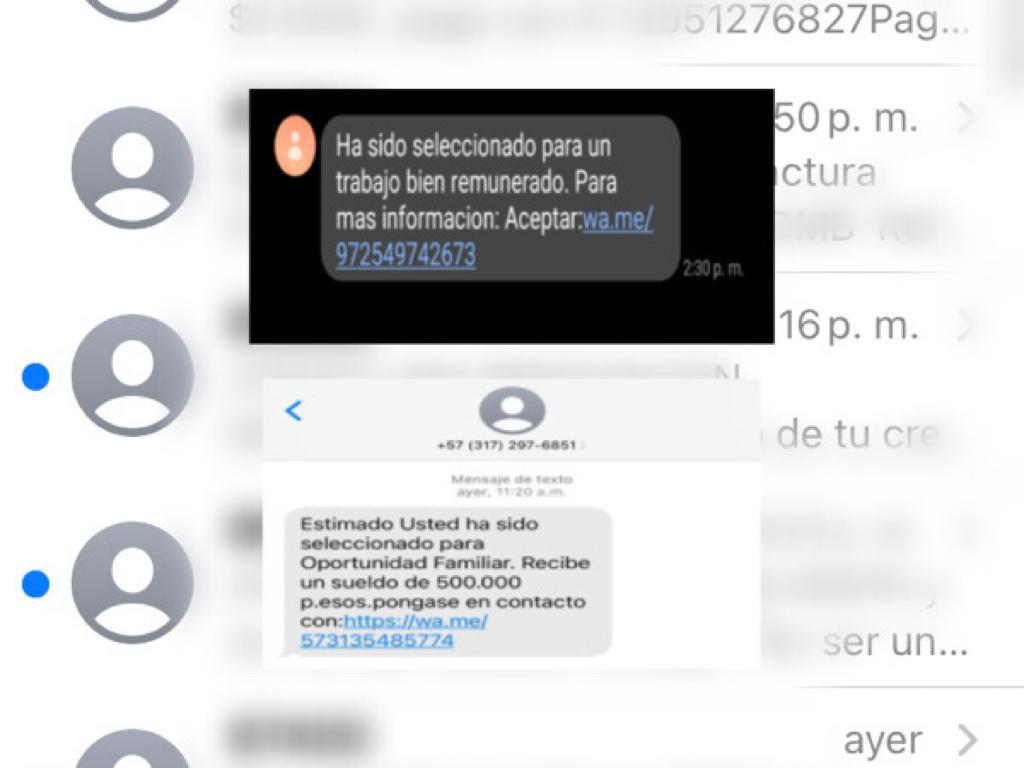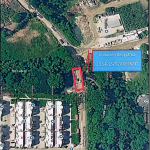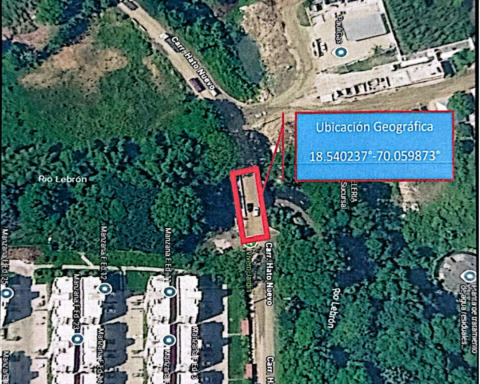From the one that got a ‘super job offer’ to messages where they say “you won a car”, to update your account passwords and enter a link, until they give you credits for reports “without paperwork”.
Colombia News.
Hundreds of Colombians continue to receive messages of up to three and four text messages, and even by WhatsApp, of dubious origin where they indicate that they received an “excellent job offer” or that they won a prize.
Of this there are thousands of messages that are sent to users every day in Colombia.
“They are intense,” users report.
lack of control…
Some messages even reach the ‘name’ of “I am the manager” of such a company and we are looking for you.
Who controls this type of messaging that reaches users of telephone operators in Colombia on a massive scale? No one answers.
Although many have denounced why they have fallen for these that turn out to be scams, there are no visible faces of culprits.
“That’s from the call centers in prisons,” say many.
For example, in the case of extortion in regions such as the Caribbean, more clearly in the Atlantic, the same authorities have reached those who extort, and yes, they are prisoners.
How do they get the phone number databases, it is not known. Or publicly no authority says so.
Mobile phone users are offered “a job” by paying $300,000 or $500,000 pesos a day, “accept this vacancy” and leave the link.
Despite all the information that circulates and that indicates that these types of messages are a hoax, because they want to steal your information to impersonate, steal or extort you later, people continue to access those links.

It was won with some brand of cookies «you won a car, claim it, click here»: Have you even bought those cookies and have you left your data so that they can contact you because they were raffling a car? No, «people don’t stops to analyze that, they don’t analyze why a message like these arrives, “they point out.
Interested in:
Millions of data in digital databases
The other dilemma for citizens is that their telephone numbers, personal data and even their ID numbers roll in the databases of banks, businesses, stores and telephone operators.
Who controls how these millions of pieces of data are handled?
- Why, if your line belongs to one operator, do they call you from another to offer you products and services?
If this happens, you must remember how and to whom you give your information, when you walk down the street and they ask you for a survey, or go in to ask about a service.
The so-called ‘fine print of the contract’.
The so-called marketing and commercial strategies are a “double-edged sword”, warn specialists, in many entities they do not give information if a record is not first made with at least basic data and the signing of a “responsibility and acceptance” format.
There, your data is already there, and it remains even if you are denied credit, or the product or you finally do not access it.
In addition, the other problem is the leaks to public entities, company pages and social networks.
Many consent documents that today make you sign to acquire a product or service, indicate that they will share your information with others, of course for commercial and marketing purposes, but they will share them.
So far, there is no bill that seeks to protect people’s data in that market system.
check
Despite the constant complaints about this type of scam and theft, there are few catches, they are difficult to track.
The main call of the authorities is that citizens try to verify the messages that reach them, with their banking entities, operators, stores from which they are supposedly called.
Do not give your identity card number, or address or respond if you have not been able to verify that it is the official entity that is communicating with you.
For example, most transactions are made with a general code through wire transfer companies, or an official bank account, not depositing to individuals.
Unless it is a credit with individuals and you, be clear about that.
In those cases, for example, it applies to pay the fees.
stay alert
If you have not requested changes of number, plan on your phone, any product in a bank, you do not have to provide personal information.
If it is from an entity that calls to offer you other products, different from the ones you have, they must tell you what your personal data are and you decide whether to confirm them by phone or not.



















